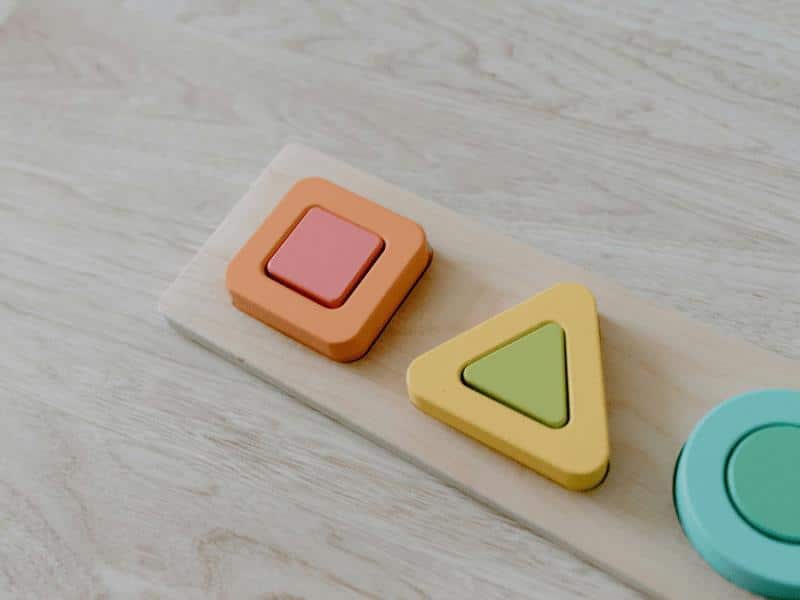
IQ Games For Kids
Introducing IQ games for kids is a fantastic way to support cognitive growth while keeping learning engaging and enjoyable. From problem-solving to memory-building, these games help children develop essential thinking skills that will benefit them for life.
What Is IQ, and Why Does It Matter?
IQ (Intelligence Quotient) measures cognitive abilities such as reasoning, problem-solving, and memory. While it’s only one aspect of intelligence, it plays a role in academic performance and learning capabilities. The great news? IQ isn’t fixed—it can be strengthened through stimulating activities, particularly in early childhood.
A high IQ could mean that your little one has stronger cognitive abilities, which can lead to better grades and improved problem-solving skills.
IQ and EQ
But let’s not put all our eggs in the IQ basket. Emotional intelligence, creativity, and practical problem-solving are just as vital in shaping a well-rounded child.
The exciting thing about IQ? It’s not fixed; it can change over time, particularly during your child’s formative years when their brain is developing rapidly.
At Shichida Australia, we believe other factors like emotional intelligence, resilience, creativity, and a positive attitude are equally important in their journey to success. During our classes, we focus on nurturing your child’s IQ and EQ (emotional intelligence).
Best IQ Games for Kids by Age Group
IQ Games for Babies (6-12 months)
It’s never too early to support cognitive development! Simple, interactive activities lay the foundation for problem-solving and memory skills.
- Peekaboo: Teaches object permanence, an important early cognitive skill.
- Stacking Cups: Develops hand-eye coordination and an understanding of sizes and spatial relationships.
- Mirror Play: Helps babies recognize themselves and develop social awareness.
- Touch-and-Feel Books: Engages multiple senses, strengthening brain connections.
- Musical Toys: Encourages auditory recognition and pattern learning.
IQ Games for Toddlers (1-3 years)
Toddlers are naturally curious, making this a great time to introduce games that build critical thinking and problem-solving skills.
- Shape Sorting: Enhances spatial awareness and problem-solving.
- Memory Tray: Strengthens recall by encouraging toddlers to remember and find missing items.
- Colour Matching Games: Supports pattern recognition and logical thinking.
- Simple Puzzles: Builds patience, hand-eye coordination, and reasoning skills.
- Hide-and-Seek with Objects: Encourages spatial memory and observation skills.
IQ Games for Preschoolers (4-6 years)
Preschoolers benefit from games that challenge their thinking and introduce foundational skills in logic and reasoning.
- Maze Games: Helps improve problem-solving and spatial awareness.
- Simon Says: Strengthens memory, attention, and ability to follow instructions.
- Pattern Recognition Games: Encourages logical thinking and early math skills.
- Guess the Sound: Develops auditory processing and memory.
- Board Games with Strategy Elements: Enhances vocabulary, turn-taking, and planning skills.
IQ Games for Kids (6+ years)
Older kids enjoy more complex games that encourage deeper thinking, strategy, and logical reasoning.
- Chess: Improves strategic thinking, memory, and planning.
- Sudoku & Logic Puzzles: Strengthens pattern recognition and logical deduction.
- Storytelling Challenges: Enhances creativity and sequencing skills.
- Math-Based Card Games: Reinforces numerical reasoning and problem-solving.
- Crossword Puzzles: Expands vocabulary and critical thinking.
Outdoor IQ Games for Kids
Cognitive development isn’t limited to indoor activities—outdoor play can be just as beneficial. Here are some active IQ games to try:
- Nature Scavenger Hunt: Encourages observation and categorization skills.
- Hopscotch with Numbers: Combines physical movement with problem-solving.
- Shadow Drawing: Introduces the concept of time and the sun’s movement.
- DIY Obstacle Course: Promotes problem-solving and spatial awareness.
Other Ways to Support Your Child’s IQ
Beyond games, here are five essential ways to encourage cognitive development:
- Healthy Diet: Omega-3s, proteins, and nutrient-rich foods support brain function.
- Regular Exercise: Physical activity enhances focus, memory, and learning.
- Quality Sleep: Sleep is crucial for consolidating knowledge and problem-solving.
- Reading Together: Reading nurtures comprehension, creativity, and vocabulary.
- Encouraging Curiosity: Answering children’s questions fosters critical thinking and a love of learning.
Encouraging a Love for Learning
IQ games are valuable, but a balanced approach to learning is key. The goal isn’t to pressure children to achieve high IQ scores but to nurture curiosity, problem-solving, and a joy for discovery. Every child has unique strengths—supporting these will create lifelong learners.
There’s something magical about seeing a child’s face light up when they solve a challenge or discover something new. At Shichida, we focus on nurturing each child’s potential through play, curiosity, and meaningful connections. IQ games are just one of the many ways we encourage thinking skills while keeping learning fun. It’s not about perfection – it’s about finding joy in learning and building a strong foundation for the future.
Book a trial class at Shichida Australia today and give your child the best start in life!


